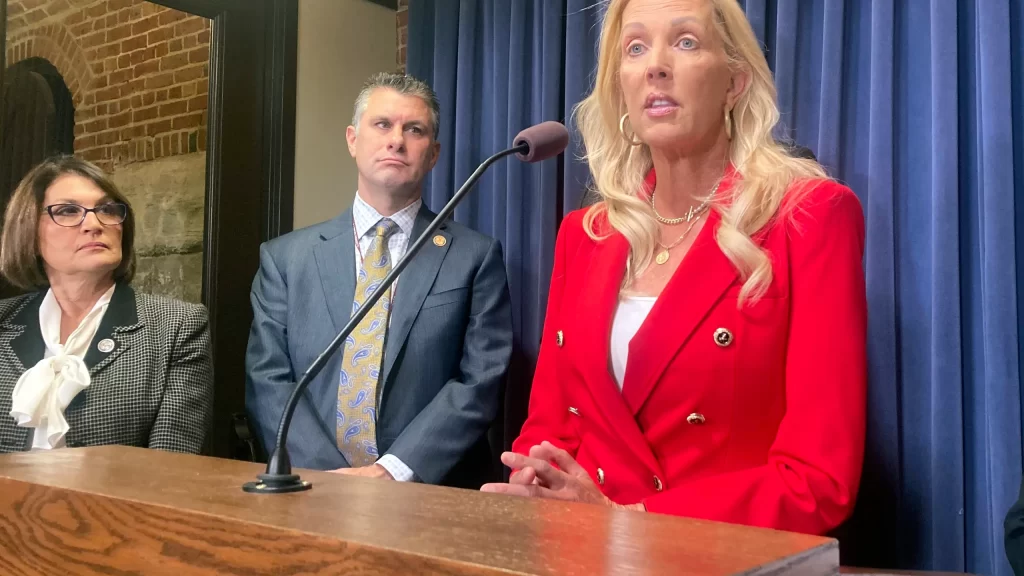
A Republican Illinois senator proposed fresh legislation Tuesday lifting a moratorium on new nuclear reactors and calls for new rules governing them, one of the concerns raised in a gubernatorial veto of a previous version of the legislation.
Sen. Sue Rezin, of Morris, won overwhelming legislative support last spring to end the 1987 prohibition on new nuclear operations in favor of small modular reactors. Democratic Gov. J.B. Pritzker sided with environmentalists and, citing concerns about outdated regulations and the long-running problem of waste disposal, vetoed it.
Instead of seeking a vote to override the veto during this week’s final three days of legislative session for the year, Rezin floated the new plan which would reduce the allowable size of small modular reactors and produce modernized rules to handle them.
The reactors are designed not to produce electricity to be widespread across the power grid, but to provide electricity to a single site where it’s installed, such as a large factory. Rezin acknowledged they still must undergo the federal permitting process lasting as long as eight years that traditional plants must undergo.
“All we’re trying to do is lift the moratorium to say that Illinois is in fact looking at this new advanced nuclear technology as part of its future energy portfolio,” Rezin said.
To Rezin, that’s proof that nuclear must be included in the carbon-free future. Environmentalists disagree and persuaded Pritzker’s veto.
To answer the governor’s concerns, the latest plant instructs the Illinois Emergency Management Agency to develop guidelines on decommissioning reactors, environmental monitoring and emergency preparedness by Jan. 1, 2026.
It also reduces the allowable maximum size of each small modular reactor to 300 megawatts, down from 345.
The Senate Executive Committee heard Rezin’s measure Tuesday afternoon but did not take a vote. Mark Denzler, president and CEO of the Illinois Manufacturers’ Association, testified in favor of the measure, explaining that manufacturers use one-third of all the nation’s energy and need reliable sources to keep the lights on.
Many plants, particularly corn and soybean processors, use steam power, Denzler said.
“You can’t generate steam from wind or solar,” he said.
Environmental advocates did not appear before the committee. Jack Darin, director of the Illinois chapter of the Sierra Club, called the debate “largely rhetorical” because construction of a reactor could be a decade or more away. He said lifting the moratorium before conducting studies to develop new rules is backward.
“Those are the studies we should be doing before lifting a moratorium,” Darin said. “So we’re saying, ‘Go ahead and build them, if anybody wants to’ — and nobody does right now — ‘and we’ll start thinking about different ways these could be problematic.’”






